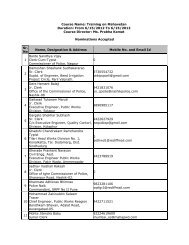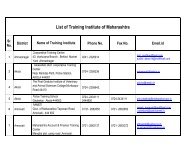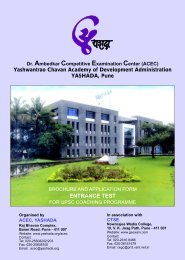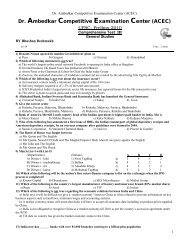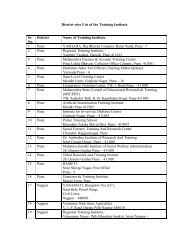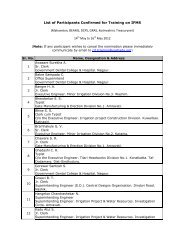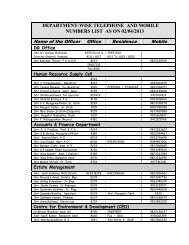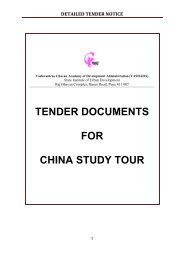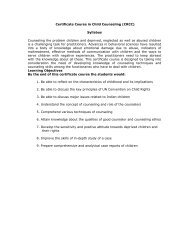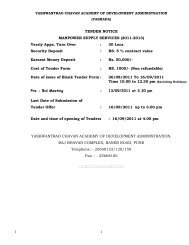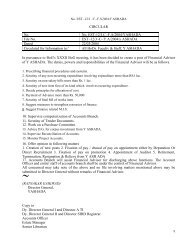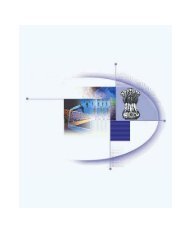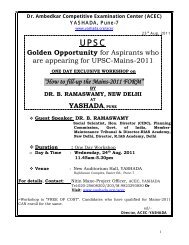Policy Circulars 2004 - yashada
Policy Circulars 2004 - yashada
Policy Circulars 2004 - yashada
You also want an ePaper? Increase the reach of your titles
YUMPU automatically turns print PDFs into web optimized ePapers that Google loves.
4. Identifying problem areas in various sectors of co-operation and undertaking<br />
research in those areas to provide solutions.<br />
5. Documenting success stories in various sectors such as PACS. urban banks. urban<br />
credit societies block level village artisans co-operative societies, co-operative<br />
credit societies, APMC. consumer co-operative societies, dairy co-operative<br />
societies, novel cooperative societies.<br />
6. Organising training for agricultural marketing.<br />
7. Exposure training of selected co-operators/social activist from each districts<br />
regarding successful running of various types of co-operative societies. .<br />
8. Training of trainers identified from urban co-operative banks / co-operative credit<br />
societies/ APMC of all districts.<br />
9. Associating district banks association/federations of co-operative credit societies<br />
and planning for training at district level as YASHADA out reach programme.<br />
10. Suggesting reforms in the working of Urban co-op. Banks/Urban co-op credit<br />
societies.<br />
11. Preparing manual of detailed guidelines for proper functioning for the directors of<br />
DCCB/UCB / urban credit societies.<br />
12. Organising Management devt. programmes for newly recruited officers in Urban<br />
Banks.<br />
The special Cell for Co-operation should strive to achieve the above objectives by<br />
associating experts in various fields of Co-operation.<br />
Ratnakar Gaikwad<br />
Director General<br />
1. PA to DG for record<br />
2. All HoD and faculty members<br />
3. Registrar<br />
4. Course Cell<br />
94




